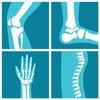The risk appears to be greater during hospitalisation, as it is within the general population, the Swedish researchers added.
The study, published in the Journal of the American Medical Association, doesn't prove that rheumatoid arthritis directly increases the likelihood of blood clots.
Still, it provides "strong evidence that there is a connection between rheumatoid arthritis and blood clots, and that something related to rheumatoid arthritis - inflammation, treatment, other factors - is increasing the risk of blood clots," said study author Dr Marie Holmqvist, a postdoctoral researcher at the Karolinska Institute in Stockholm.
How the study was done
Rheumatoid arthritis is different from osteoarthritis, the arthritis associated with wear-and-tear and ageing. Rheumatoid arthritis frequently starts between the ages of 25 and 55, and causes inflammation in the joints, resulting in swelling, stiffness, pain and reduced joint function.
Previous research has suggested a link between rheumatoid arthritis and blood clots known as deep vein thrombosis, a clot usually located in the leg or thigh. If the clot travels to the lung, it is called a pulmonary embolism. The clots can lead to heart attack and stroke.
In the new study, researchers sought to better understand the extra risk and determine whether it goes up when patients are hospitalised. They tracked more than 45 000 people in Sweden with rheumatoid arthritis and similar people without the disease from 1997 to 2010.
Of the nearly 38,000 patients who had the most doctor visits for the condition, 2.2% suffered from diagnosed blood clots. The number was half that - 1.1% - among the people without the condition.
"Few individuals experienced a blood clot, so rheumatoid arthritis patients in general shouldn't fear blood clots in their everyday life," Holmqvist said.
Blood clots in both groups were more common in the first year after hospitalisation, and the rates were similar in those with rheumatoid arthritis and those without during that year.
If it's true that rheumatoid arthritis causes blood clots, Holmqvist said, it may have something to do with the inflammation that afflicts those with the condition or their treatment.
Other factors play a role
Dr Daniel Solomon, chief of clinical sciences in rheumatology at Brigham and Women's Hospital in Boston, said other factors increasing the risk could include genes, exposure to tobacco and the inactivity that's more common in patients with moderate or severe rheumatoid arthritis. For now, however, it's not clear what's going on.
Solomon praised the study and said it adds to existing knowledge about the risk of blood clots in rheumatoid arthritis patients. Along with other studies, it provides more knowledge about vascular problems - medical conditions that clog blood vessels - in these patients, he said.
"While most of these patients will not experience a blood clot, a significant minority will over their lifetime," he said. "Since we do not have a clear strategy for managing this risk, it is too early to determine whether worrying about it is useful. But providers and patients should receive education about it."
Read more:
Diagnosing rheumatoid arthritis
More information
For more about rheumatoid arthritis, see the U.S. National Library of Medicine.
(Copyright © 2012 HealthDay. All rights reserved.)




 Publications
Publications
 Partners
Partners
















